Euphoria, the tv show that everyone who tries to understand gen ˈZˈ should watch
Euphoria is one of HBO's teen series that became a true hit, created by Sam Levinson and directed by Francesca Orsi.


Euphoria is one of HBO's teen series that became a true hit, created by Sam Levinson and directed by Francesca Orsi, it takes us on a journey through their main characters that throughout the series, we live with them their problems, fears, and show us a stark reality of what it's like to be a teenager today.
Read the netflix show "Warrior Nun" review here
Sam clearly has a lot to say about sex, social media and the way we use it, violence, mental health and addictions, this series does not have all the answers to what it is like to be part of the z-generation, but it gives you an idea of it. In fact, Sam Levinson inspired one of these characters in his life, he used to have drug problems when he was only 19 years old, so, he tried to reflect all those ups and downs of trying to get out of this addiction with our protagonist "Rue", played by Zendaya Coleman.
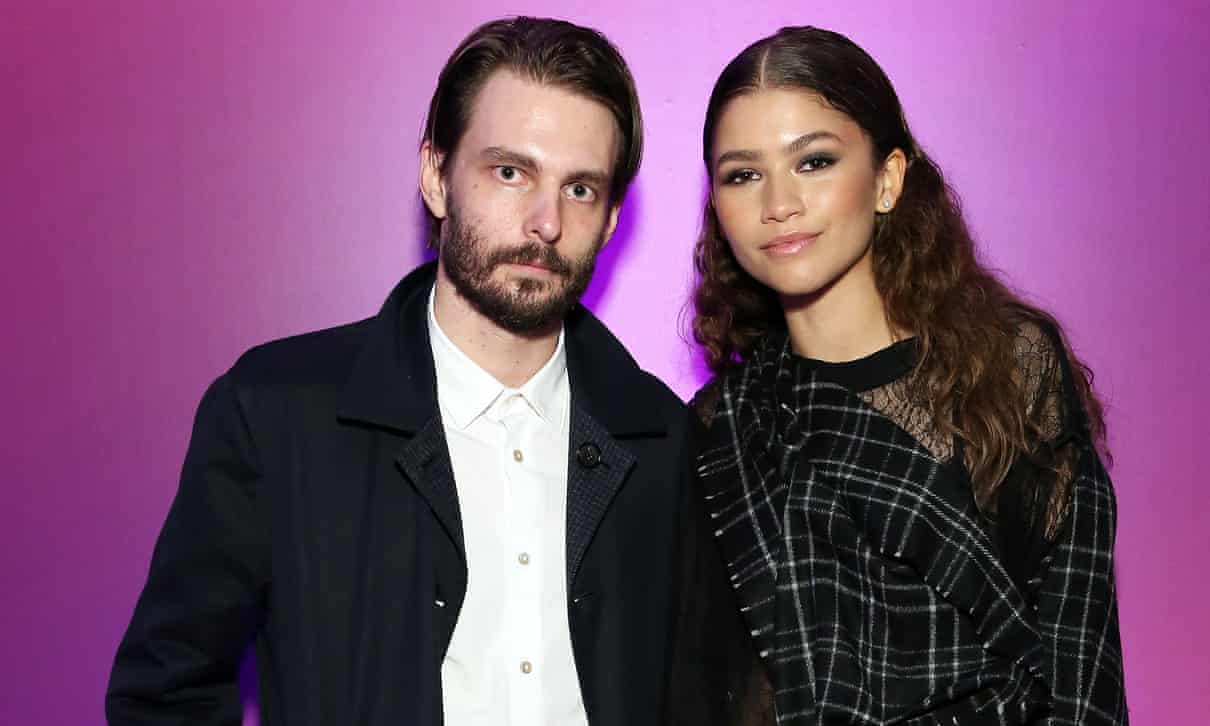
Zendaya used to think that she wasn't enough for that role, because it was something very different from what people expected her to be as a Disney actress, after finishing Spiderman's recording, she felt that none of the characters she was auditioning made her felt comfortable, but, Sam always had her in mind to be the protagonist , “I always believed in her ability and saw her capable of everything”, Zendaya said that he helped her a lot, “We always need someone who believes in us and sees us capable of doing everything we set out to” -Zendaya said in an interview. When she read the script, she felt the need to tell the story of Sam and bring rue’s character to life. Her character is dark and complex and manages to get her out of those Disney roles in which everyone typecast her, she is shown in a way never seen before in her characters.

It’s very controversial but something that everyone needs to watch
Euphoria is even for adults, the creator Sam Levinson, is not afraid to cause controversy; shows us a raw picture of a first approach to drugs at an early age to lead us to see all that social pressure can cause young people to get things done. But it's not all in youth: Euphoria also takes a little glimpse into the lives of parents, who deal with various problems, and vices. We simply have to take a look at both sides of the coin. if you watch the series willing to let yourself be surprised by what happens around the characters, you will have a good time and you will learn a lot from and their situations and why they have those actions, not everyone needs to feel represented, you can see it only because it captures your attention and teaches you a lot about topics that nowadays not everyone is willing to talk, just with seeing the pilot episode you will want more, not only for the plot, even their photography and soundtrack are something totally new and worthy to see and listen to , it causes total visual pleasure, the soundtrack was made only for this series, each song was created to be in line with the situations that, every character goes through, photography, scenery and even makeup went viral, aesthetically and visually it has been totally authentic. Far from being exaggerated as many have accused it, once inside of the plot, these resources also help in some way to immerse you even more in the story.

In each episode you can notice the changes of the characters and how they struggle to make things right even if they make mistakes along the way , they don't try to give you perfect characters where everything they do is right, or the typical good or bad people, they try to show people who makes mistakes and try to fix them, this series may not be suitable to all public, it touches on topics that for some people can be considered delicate, so it is adviced to be open-minded, many magazines and parents exclaimed about how explicit it can be sometimes but it's all part of Sam Levinson’s vision and what he wanted to represent, according to his own words.
“I think that’s what makes this generation different,” Levinson said. “It’s a totally different world. There is no compass. There is no road map. When 60 – 70 percent of all interpersonal conversations and relationships exist through text messaging or social media, it’s hard to get advice from a parent who didn’t grow up in that world.”
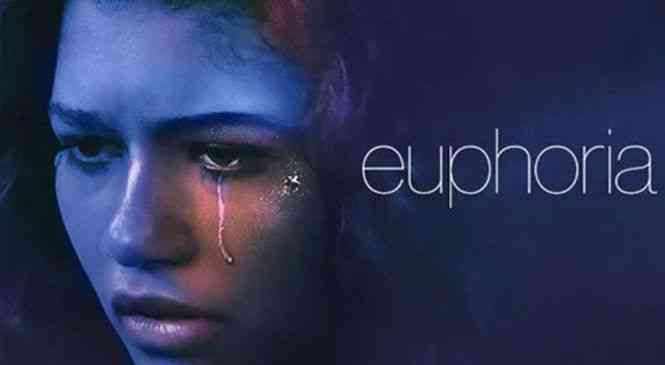
A little synopsis without spoilers
At the beginning of the season, in the pilot episode, we meet the protagonist, it shows us how she was born three days after the accident september-11-2001, Rue has a normal family until she realizes that she is bipolar and suffers from mental disorders that make her have anxiety, stress problems, etc. She starts this drug addiction when her father gets sick , she begins to realize that when he took his pills, he feels no pain, so she wanted the same for her, then she starts this routine, she becomes stronger when her dad passed away and it’s just her mother, sister and her against the world, but one summer day, she overdoses, her sister finds her and she is in a coma for a couple of days , goes to rehab but, she is still solving her problems with the pills until she met Jules, the new girl in town who had a terrible childhood dealing with her transition from becoming a girl, all those problems and her mother's little acceptance to notice that Jules always wanted to be a girl, their parents divorce is the cause of why she’s always moving out of towns, they find each other at a slightly crazy party, and immediately Rue begins to have feelings for Jules.
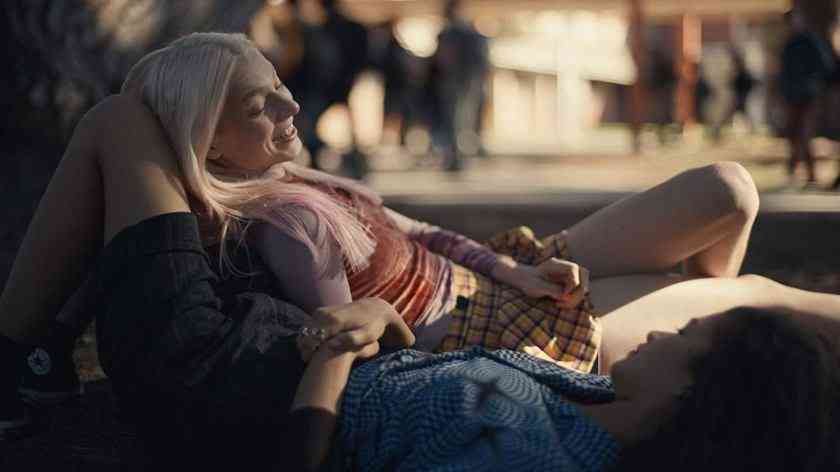
At the same time that this plot is happening, we meet the other main characters that help us develop the story, Nate Jacobs, who is one of the most complex characters and with dubious mental health, we also meet Maddy, who has a very unhealthy relationship with Nate and in each episode of the season we start to see how this is evolving in a very bad way , to a point without a reversal, her friend cassie who is initiating a relationship with mckay, lexie who is sister of cassie, and kat, every episode of the first season is all about these teenage characters and their backstories, their decisions and consequences, their constant attempts to find the "euphoria" of being a teenager, and the viewers follow them throughout the episodes, we see their evolution as a character, the problems they are developing and the way they realize their mistakes and rethink their lives, they find a way to make us stand in solidarity with them even if we are not having those situations in our lives, these boys and girls, they really teach us how dark it is to be a teenager part of the Z gene turns out to be sometimes.

This teen series catches your attention from the first episode, it talks about problems that not only happen in the adolescence, that could happen to anyone, how difficult it is to the protagonist to talk about them out loudly, everyone as a person needs to try to empathize with others and try to help as much as possible, this really gives us another perspective on teenage problems that adults sometimes don't understand , such as needing approval from others to feel good about yourself, the constant anxiety of not knowing what to do in your future, the pressure of social media, friendship and unhealthy relationships that happen to everyone, how everyone needs someone to talk to sometimes, and how difficult it is to get out of drug problems, the importance of having a good relationship with their parents , and always be your own priority, throughout the series, we start to see how our teens are really realizing their problems and try to give them a solution, they make mistakes, but it's something that everyone needs to go through to know how they do things right.
“I hope it creates a certain dialogue between parents and their kids,” Levinson said. “I don’t think this is a show for people under 17, but…”
“…but if your parent wants to have a conversation about it, that’s good,” Zendaya said.
“I think that’s part of why I have this idea, when you look at young people, anxiety rates are higher [and] depression is higher,” he said. “There’s no one to talk to about it, and at the same time, the internet inherently is so explicit you can’t really put it on TV or in film. That’s what kind of excited me about HBO. They might actually let me get away with this. They might let me portray it in a way that feels honest.”, they reveal on one interview

Where this idea came from?
Euphoria is a remake with a 2000s Israeli show that used to have the same name, this one used to talk about teen’s problems too, but more according to that decade.
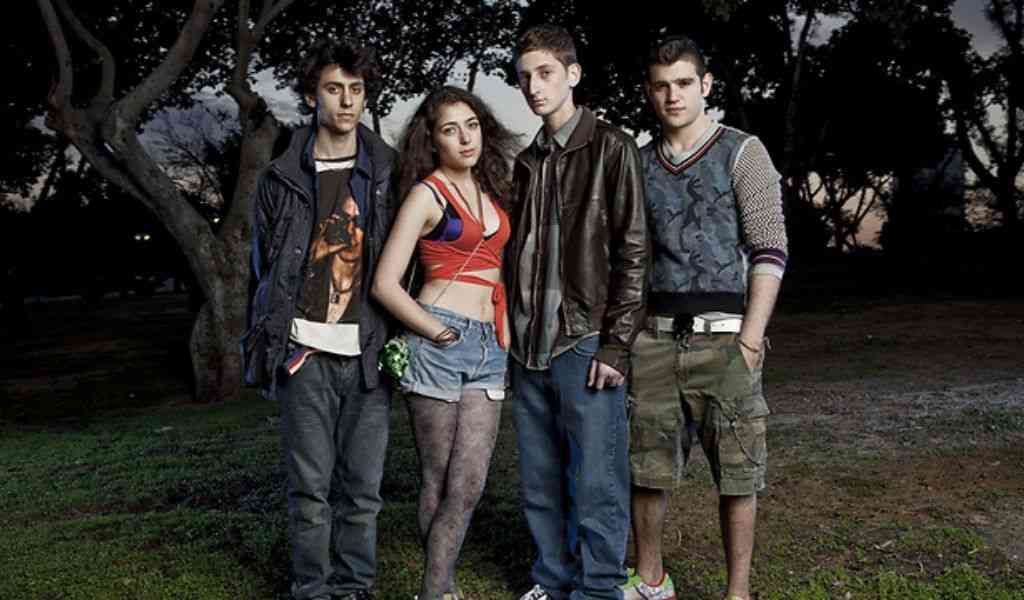
Euphoria does not try to hide or romanticize what it is to be part of a generation that basically was born knowing how to use a cell phone, letting yourself be influenced by amount of likes that you have in your photos, and learning about sex through an image on websites, a generation marked by anxiety, the uncertainty of not knowing what to do or what it’s going to happen in the future. "Psychologically [Generation Z] is more vulnerable, rates of depression and suicide in adolescents have skyrocketed since 2011; it is no exaggeration to say that this generation is on the brink of the worst mental health crisis in decades, and much of this deterioration can be attributed to their mobile phones," writes Jean M. Twenge, an American psychologist and researcher who has been studying the behavior of young people for decades, in a disturbing report published in The Atlantic.
It is not difficult to see in 'Euphoria' this kind of feelings: loneliness, exclusion, low self-esteem, inability to connect, negativity in the future, addiction to technologies, there are many complicated feelings that are treated in a necessarily complex way. Which proves Levinson's great success: creating complex and contradictory people who bump into their own thoughts and ideals, where they make mistakes that have consequences. But in all that nightmare, a light comes on. Through eight episodes, history finds solutions and moments of realizing what is being done wrong, for the problems of this young protagonists.

Some teens talk about what they think of this new TV show
"Without imposing how uncomfortable it is to watch these scenes on TV, it's even more awkward to live them. The essence of being young is having no idea what you're doing or what's going on around you, and I think this show portrays that better than anyone I've ever seen. Personally, I feel like I can relate to each character in some way. Especially with Kat. Watching her struggle with her weight from such a young age and suffering from insecurities based on it, leading her to seek approval at all costs, but I feel that way for all of them, honestly. All these characters are looking for someone's validation. I've grown up watching a lot of 'teen' shows, showing that, although entertaining, it by no means represented me or my peers. Every depiction of drug abuse and mental illness I've seen on television marketed towards my generation is unpleasantly glamorized, completely false, or both. I was very happy to see that this was not the case with Euphoria. I started the program with quite low expectations, when I started watching the program I felt like a punch in the stomach at how close I felt that affected me. Seeing Rue's family shattered by drugs and the relationships he has with his friends, classmates, doctors and strangers, it was incredibly emotional for me, I think the behavior portrayed in Euphoria speaks to the reality of our generation craving emotion and that avalanche of adrenaline. Maybe we have too much accessible content at our fingertips, so we do our best to find that emotion in something new or dangerous”
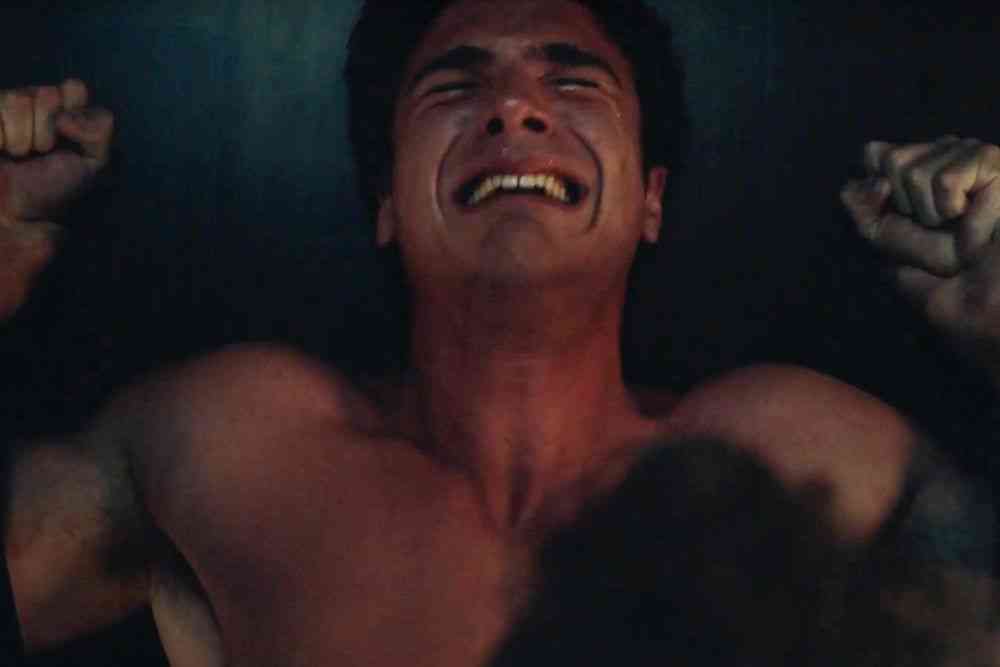
Some facts
We haven’t stopped to be fascinated by the way it has been to point out certain behaviors and actions with the consequences, not only among the adult population, but among adolescents: from how toxic masculinity can be, to the impact that its simple physical appearance can have on many adolescents and how they feel by not "satisfy" the standards that society imposes. The magazine Men's Health wondered whether the adolescence portrayed by Euphoria is realistic. After answering "it's complicated," the show's creator, Sam Levinson, is clear: "Young people will say, 'Yes, that's my life.' Not everyone will feel identified, but they sure know someone who has suffered things close, there will be parents who will be totally surprised. It may seem that we're breaking the boundaries by showing these scenes on TV, but they're there because someone has lived them. I hope the series will provoke reflection and dialogue"
As critic Tim Goodman says, "It may not be the story of all teenagers, but it's a story that hasn't been told like that in a long time."
It's the first time we've seen reflected in a series so naturally and honestly what it means to be a Trans teenager, and what it's like to be something more than just a identity or a transition. Yes, it's something that's part of Jules, but she's a lot more complicated and complex than that. In promotional interviews, Hunter Schafer herself explained how she was fascinated by the portrait she made of Jules, remaining that being trans is not only your identity, you are a person like any other with problems beyond the transition and how she herself as a trans could identify in many ways with her character
Euphoria it’s nominated for 6 Emmy awards, very worthy from everyone in this project,
To end this little review of this amazing captivating show, not everyone needs to watch it, but if you want new perspectives and learn about things that happen every single day not only to teens, this show is for you.
You’re going to be trapped to every single plot that happens in this TV show, when you think that you have seen it all, This TV show, shows you that you haven't seen everything.

Recommended reading:


